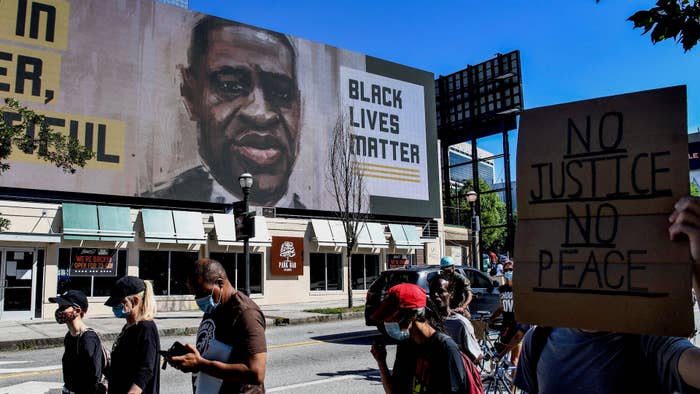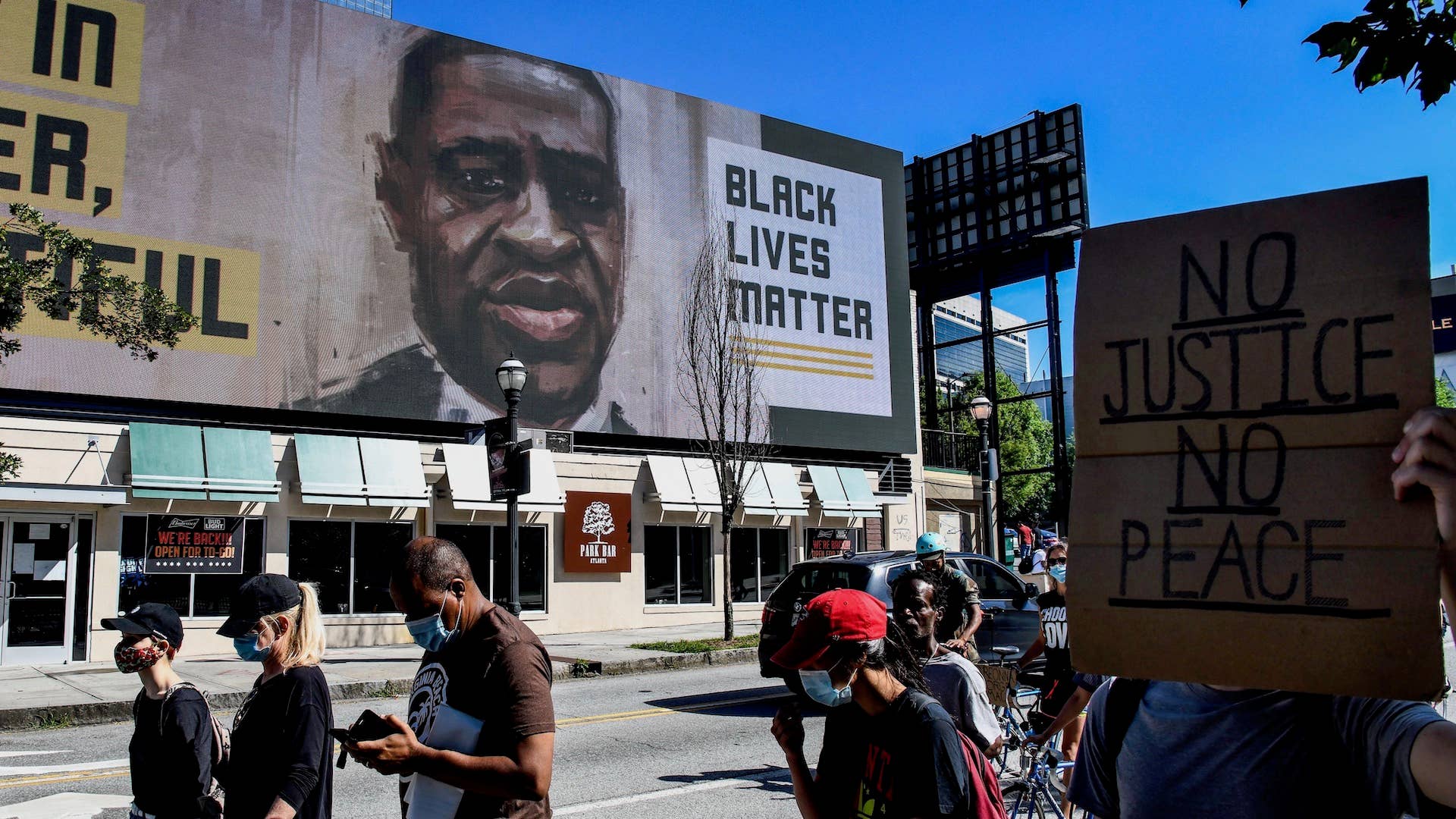
George Floyd began fearing for his life as soon as officers approached him on the night of his death.
According to bodycam transcripts obtained by TMZ, former Minneapolis officer Thomas Lane confronted Floyd in a car and immediately demanding the 46-year-old Black man to show his hands. Floyd started apologizing to Lane, insisting he was nervous due to a previous gun-related incident.
"I'm so sorry. God dang man ... I got shot the same way Mr. Officer, before," Floyd reportedly told Lane. "Last time, I got shot like that Mr. Officer, it was the same thing ... Please don't shoot me. Please, man ... I'll look at you eye-to-eye, man. Please don't shoot me."
Lane reassured Floyd he wasn't going to shoot; but just several moments later, three officers were pinning Floyd to the ground for allegedly passing a counterfeit bill. The transcript was included in a newly filed motion to dismiss the charges against Lane, who is one of four officers charged in Floyd's May 25 police killing.
A bystander filmed the attempted arrest that ultimately led to Floyd's death. Video showed former officer Derek Chauvin kneeling on Floyd's neck for nearly nine minutes as he repeatedly shouted, "I can't breathe." Lane was seen pinning Floyd's legs to the pavement, while ex-officer J. Alexander Kueng pushed on Floyd's back. Their former colleague Tou Thao stood by and attempted to keep bystanders at bay, as they pleaded with officers to release Floyd.
Chauvin has since been charged with murder and manslaughter, while Lane, Kueng, and Thao were each charged with manslaughter as well as aiding and abetting murder. Lane's attorney argues, however, that his client was not responsible for Floyd's death. His lawyer Earl Gray points out that Lane had suggested Floyd be rolled on his side, but Chauvin objected. He also claims Lane "had no reason to believe that a third degree assault was being committed, nor did he intend for the restraints of his Floyd’s legs to help commit a crime."
Per Gray's legal arguments obtained by the Star-Tribune:
Lane did not intentionally aid, advise, hire, counsel, or conspire with Chauvin or otherwise procure Chauvin to commit second degree murder. Lane did not encourage any alleged criminal actions of Chauvin ... Lane did not know what Chauvin was thinking while restraining Floyd. Chauvin did not verbally tell Lane anything about his intentions other than waiting for the ambulance to arrive. Lane knew Floyd needed to be restrained and he knew Chauvin was authorized to use reasonable force to restrain.

